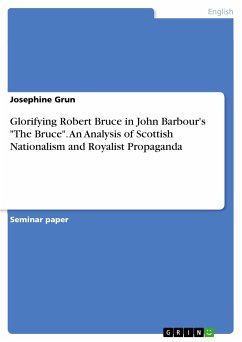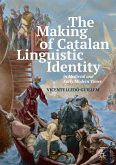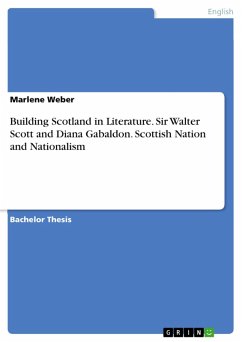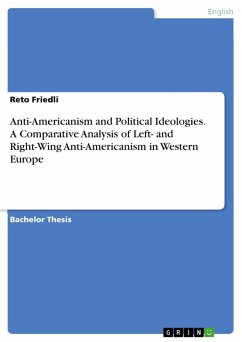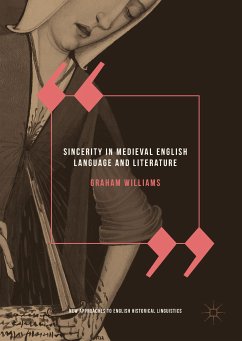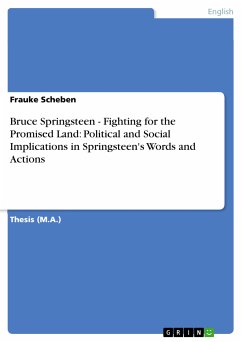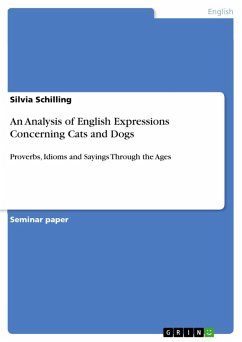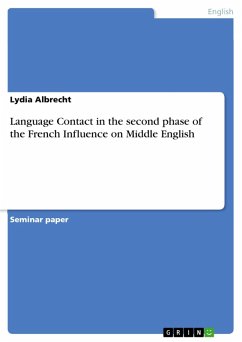Seminar paper from the year 2022 in the subject English Language and Literature Studies - Literature, grade: 1,0, Free University of Berlin (Institut für Englische Philologie), language: English, abstract: This analysis examines John Barbour's "The Bruce," a significant medieval Scottish work, for its portrayal of Scottish nationalism and royalist propaganda. The aim is to explore how Barbour distorts history to reinforce Robert II's position and underscore Scotland's independence. Written in the 1370s, John Barbour's "The Bruce" is an epic poem narrating Scottish history from 1286 to 1332, with a focus on Robert Bruce's leadership in the First War of Scottish Independence. Though classified as a chronicle, romance, biography, and epic, the work blends historical facts with royalist propaganda. This study argues that "The Bruce" incorporates elements of Scottish royalist propaganda and nationalism to justify and strengthen Robert II's position and Scotland's status as an independent nation. It distorts or omits specific historical events, glorifies the historical figure of Robert Bruce, and emphasizes anti-English sentiments. The analysis is organized into three sections: the portrayal of the succession dilemma and Wars of Independence, the praise of Robert Bruce, and the negative depiction of England.
Dieser Download kann aus rechtlichen Gründen nur mit Rechnungsadresse in A, B, BG, CY, CZ, D, DK, EW, E, FIN, F, GR, HR, H, IRL, I, LT, L, LR, M, NL, PL, P, R, S, SLO, SK ausgeliefert werden.

